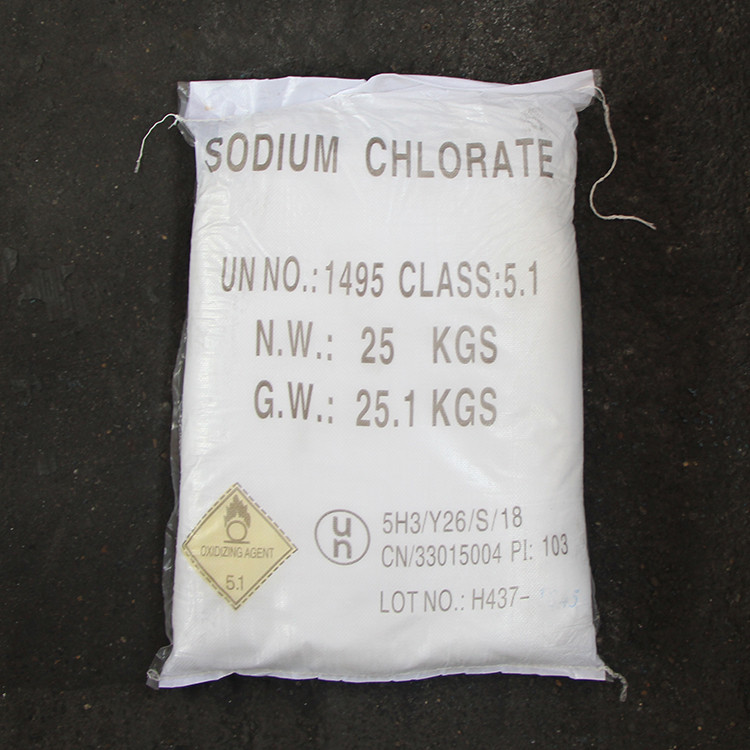



Bulk Sodium Chlorate - FIZA | High Purity, Industrial Applications
Sodium chlorate (Sodium Chlorate) is a critical inorganic chemical compound with the chemical formula NaClO₃. Known for its unique properties and wide-ranging applications, it plays a pivotal role in various industries, including pulp and paper manufacturing, water treatment, and chemical synthesis. This article provides an in-depth analysis of its characteristics, technical specifications, industrial applications, and the company behind its production, FIZA.

Key Properties of Sodium Chlorate
Sodium chlorate is a white crystalline powder that exhibits high solubility in water. Its hygroscopic nature means it readily absorbs moisture from the environment, necessitating careful storage conditions. One of its most notable characteristics is its thermal decomposition behavior: when heated above 300°C, it releases oxygen gas and leaves behind sodium chloride (NaCl). This property makes it a valuable precursor for generating chlorine dioxide (ClO₂), a compound widely used in industrial processes.
According to the National Institute of Standards and Technology (NIST), sodium chlorate is classified as a strong oxidizing agent, requiring strict handling protocols to prevent hazardous reactions with reducing agents or organic materials. Its chemical stability under normal conditions, combined with its reactivity under specific conditions, positions it as a key component in numerous industrial applications.
Technical Specifications and Quality Standards
The product adheres to stringent quality standards, as outlined in the following specifications:
| ITEMS | STANDARD |
|---|---|
| Purity-NaClO₃ | ≥99.0% |
| Moisture | ≤0.1% |
| Water Insolubles | ≤0.01% |
| Chloride (based on Cl) | ≤0.15% |
| Sulfate (based on SO₄) | ≤0.10% |
| Chromate (based on CrO₄) | ≤0.01% |
| Iron (Fe) | ≤0.05% |
Additional details about the product include:
| Brand Name | FIZA |
|---|---|
| CAS No. | 7775-09-9 |
| EINECS No. | 231-887.4 |
| Molecular Formula | NaClO₃ |
| Molecular Weight | 106.44 |
| Appearance | White crystalline solid |
| Other Names | Sodium chlorate Min |
Industrial Applications and Use Cases
Sodium chlorate is primarily utilized in the production of chlorine dioxide (ClO₂), a powerful oxidizing agent with diverse applications. According to NIST, approximately 95% of sodium chlorate usage is dedicated to pulp bleaching in the paper industry, where it helps achieve high-brightness paper by removing lignin and other impurities. This application underscores its significance in sustainable manufacturing processes.
Beyond pulp bleaching, sodium chlorate serves as a precursor for synthesizing other chlorate compounds through salt metathesis reactions. For instance, it can be converted into potassium chlorate (KClO₃) by reacting with potassium chloride (KCl). Additionally, industrial perchlorate compounds are produced via the electrolytic oxidation of sodium chlorate solutions, highlighting its versatility in chemical synthesis.
Other notable applications include:
- Water Treatment: Sodium chlorate is used in the generation of chlorine dioxide for disinfecting water and controlling microbial growth.
- Chemical Manufacturing: It acts as an oxidizing agent in the production of various organic and inorganic compounds.
- Explosives Industry: Due to its oxidizing properties, it is sometimes incorporated into explosive formulations.
Company Background: FIZA Technology Co., Ltd.
Manufactured by HEBEI FIZA TECHNOLOGY CO., LTD., a leading chemical producer based in Hebei, China, sodium chlorate is part of a broader portfolio of industrial chemicals. The company specializes in high-purity inorganic compounds, catering to global markets with a focus on quality, reliability, and compliance with international standards.
FIZA’s commitment to excellence is reflected in its rigorous quality control processes, which ensure that its sodium chlorate meets or exceeds industry benchmarks. The company’s product line includes bulk and custom packaging options, such as 25 kg/bag and 1000 kg/bag, tailored to meet specific customer requirements.
Advantages of Choosing FIZA’s Sodium Chlorate
Opting for FIZA’s sodium chlorate offers several advantages:
- High Purity: With a purity level of ≥99.0%, the product ensures consistent performance in critical applications.
- Reliable Supply Chain: FIZA’s production capabilities and logistics network guarantee timely delivery of bulk quantities.
- Customization: The company provides flexible packaging solutions to accommodate diverse operational needs.
- Expertise: Backed by years of experience in chemical manufacturing, FIZA delivers products that meet global safety and quality standards.
Conclusion
Sodium chlorate is a cornerstone chemical in modern industrial processes, with applications spanning pulp bleaching, water treatment, and chemical synthesis. Its unique properties, combined with FIZA’s commitment to quality, make it a preferred choice for manufacturers worldwide. As industries continue to prioritize sustainability and efficiency, the demand for high-purity sodium chlorate is expected to grow, further solidifying its role in global chemical markets.
References
Source: National Institute of Standards and Technology (NIST)
-
How and Why to Disinfect Water Softeners for Safe, Reliable WaterNewsNov.24,2025
-
Effective Deionized Water Disinfectant Solutions for Healthcare & Industrial UseNewsNov.24,2025
-
Commonly Used Disinfectant for Drinking Water – Global Uses & InnovationsNewsNov.23,2025
-
Chemical to Disinfect Water – Essential Solutions for Safe, Clean Drinking WaterNewsNov.23,2025
-
Blue Water Disinfectant: Safeguarding Global Water Quality with InnovationNewsNov.22,2025
-
Bleaching Powder for Water Disinfection – Affordable & Effective Water Treatment SolutionNewsNov.22,2025
-
Bleaching Powder Drinking Water: Effective, Affordable Disinfection WorldwideNewsNov.21,2025










